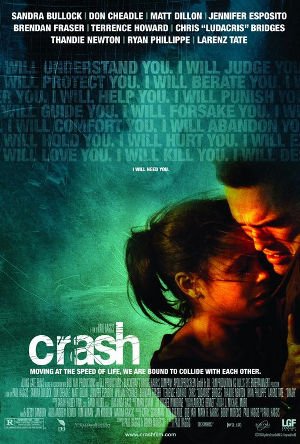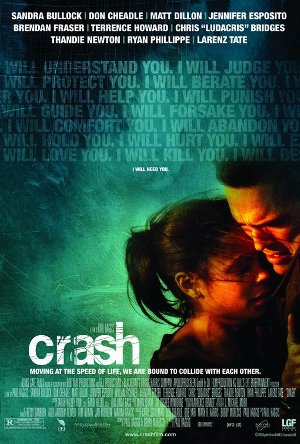Showdowns, stampedes, stunning horsemanship, bank robbing, slap-stick comedy, fist fights and plenty of cheesy dialogue like “Whippersnapper” and “Golly Gee” is all part of the experience of the 40’s, 50’s and 60’s style spaghetti westerns.
Some of this oldtime western collection is in black and white goodness that will take you back to the good old days of cap guns and no blood gut shots; the good guys always win and get the girl in the end. A few of the films are in glorious 60’s technicolor and captures a few great cinematic moments in western film history.
Westerns in the Good Old Days
1 Star
 |
| (Giddy Up!) |
Showdowns, stampedes, stunning horsemanship, bank robbing, slap-stick comedy, fist fights and plenty of cheesy dialogue like “Whippersnapper” and “Golly Gee” is all part of the experience of the 40’s, 50’s and 60’s style spaghetti westerns.
Some of this oldtime western collection is in black and white goodness that will take you back to the good old days of cap guns and no blood gut shots; the good guys always win and get the girl in the end. A few of the films are in glorious 60’s technicolor and captures a few great cinematic moments in western film history.
Bonanza Town (1951)
Atop his trusty white steed, The Durango Kid (Charles Starrett) saddles up once again to save the day. A silly slap stick sing along western about a $30,000 Dodge City hold up and murderous vigilantes of Bonanza Town. The Durango Kid and his silly side kick, Smiley Burnette, work together to rid Bonanza Town of the evildoers, Henry Hardison (Fred F. Sears) and Krag Boseman (Myron Healey). Charles Starrett was among the top ten western stars until his retirement in 1952.
Texas (1941)
Dan Thomas (William Holden) and Tod Ramsey (Glenn Ford) are two adventurous friends looking for fortune and glory, but their little trip in the Lone Star state goes awry. Witnessing a stagecoach hold up, the rough and tumble drifters decide to take the loot for themselves and head their separate ways. Crossing each others path on down the line, the two friends find themselves in love with the same woman and on opposite sides of the law. Snappy dialogue and bare knuckle boxing gives the right amount of old time western goodness to Texas.
The Texican (1966)
A story about a reformed gunfighter, Jess Carlin (Audie Murphy), coming out of hiding to bring justice to the villain who killed his brother, Roy (Victor Vilanova). Jess sets out to capture Luke Starr (Broderick Crawford), land baron and the man to blame for his brother’s untimely death. Jess must side step the attempts on his life by Luke’s goons and keep his neck from the noose from a bounty on his head for a murder he did not commit. Along the way he falls in love with a beautiful dance hall girl Kit O’Neal (Diana Lorys) and saves the day in the end.
The Desperadoes (1943)
The Desperadoes has it all, wild horse stampedes, barroom brawls, action, romance, and yes, it’s even in color; it’s Columbia’s first Technicolor film. The Desperadoes is, at the very most, a film engrossed in western movie cliches and icons. Cheyenne Rogers (Glenn Ford), a hunted gunman, rides into Red Valley, to find himself head over hills for the seductive Allison McLeod (Evelyn Keyes) and up to his holsters with underhanded town folk. Cheyenne takes on the job of cleaning up the lawlessness of Red Valley.
Good Day For A Hanging (1959)
Eddie ‘The Kid’ Campbell (Robert Vaughn) started out as a young rowdy buck in a low down dirty bank robbing gang. With a little help from Marshal Ben Cutler (Fred MacMurray), Eddie cleans up his act and tries the straight and narrow. Many years later the gang comes back to rob the bank again and Marshal Ben gets shot in the mix. The gang’s lawyer, being the only eye witness, frames Eddie for the murder and gets him a meeting with the noose. With the help of his sweetheart, the dead marshal’s daughter, Laurie Cutler (Joan Blackman), Eddie convinces the town of his innocence and brings the murderer to justice.
The Professionals (1966)
The Professionals is an adaptation from Frank O’Rourke’s novel, [I]A Mule for the Marquesa[/I]. J.W. Grant (Ralph Bellamy), Texas oil tycoon, hires a group of men to rescue his wife, Maria (Claudia Cardinale) from the Mexican revolutionary Raza (Jack Palance). The group of men hired includes Rico Farden (Lee Marvin) a weapons expert, Jake Sharp (Woody Strode) long bow expert and tracker, Hans Ehrengard (Robert Ryan) kick ass horseman and Bill Dolworth (Burt Lancaster) an explosives expert. The Professionals was nominated for 3 Oscars between cinematography, direction and screenplay. This film has it all, beautiful cinematic scenery, a talented cast, western action adventure and plenty of heroes out to save the day and the girl.
Oldtime western goodness. Most, if not all, of the westerns made in the 40’s and 50’s were lacking authenticity. The creators would use modern props, clothing and dialogue with out any consideration to the true style of the old west. There would be electrical lighting and gadgets, well pressed pants and sparkling new boots in a black and white western; it’s hard to watch such a film and really be able to put yourself into that fantasy world. We have come along way in film and it shows; research is put into scripts and stage setting and our acting abilities have more than tripled. Many old western actors are just that, only actors reading dialogue with little natural response to each other. It’s hard to believe that the silent films looked more real in on screen scenarios with out dialogue than the films that came shortly after. Then again it is only the movies.
 Racism is a difficult subject to broach cinematically. It’s all too easy to reduce it’s complexities and ignore the underlying reasons for racial tensions all together. Pithy moments of clarity and harsh realizations may make for good viewing, but they hardly touch on the lasting and deep seated effects of our prejudices. Paul Haggis (screenwriter of Million Dollar Baby) makes his directorial debut with Crash, a sprawling look at the seemingly endless well of racism in L.A., but for all its multiple storylines and enlightened moments all that’s left in the end is the idea that deep down we’re all just fundamentally damaged beyond repair, just simmering until that one moment brings our inner racist to the forefront.
Racism is a difficult subject to broach cinematically. It’s all too easy to reduce it’s complexities and ignore the underlying reasons for racial tensions all together. Pithy moments of clarity and harsh realizations may make for good viewing, but they hardly touch on the lasting and deep seated effects of our prejudices. Paul Haggis (screenwriter of Million Dollar Baby) makes his directorial debut with Crash, a sprawling look at the seemingly endless well of racism in L.A., but for all its multiple storylines and enlightened moments all that’s left in the end is the idea that deep down we’re all just fundamentally damaged beyond repair, just simmering until that one moment brings our inner racist to the forefront.


 Intertwining tales of violence and bubbling racial tensions crash into each other as residents of L.A. deal with issues of hate, bigotry, and racism that present themselves sometimes subtly and sometimes not-so-subtly throughout the course of the film. Crash tries to show how many people live their lives with certain ideas and notions that they might not even be aware of until they are forced to confront them. Many people won’t like the film for it’s bleak look at the human condition, but in examining this small group of people the film works for me as it shows how easily ill-will and prejudice can be passed on from one person to the next through angry or hateful exchanges.
Intertwining tales of violence and bubbling racial tensions crash into each other as residents of L.A. deal with issues of hate, bigotry, and racism that present themselves sometimes subtly and sometimes not-so-subtly throughout the course of the film. Crash tries to show how many people live their lives with certain ideas and notions that they might not even be aware of until they are forced to confront them. Many people won’t like the film for it’s bleak look at the human condition, but in examining this small group of people the film works for me as it shows how easily ill-will and prejudice can be passed on from one person to the next through angry or hateful exchanges.
